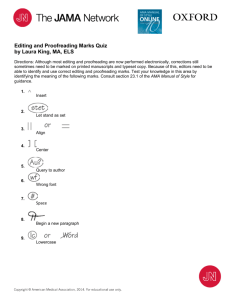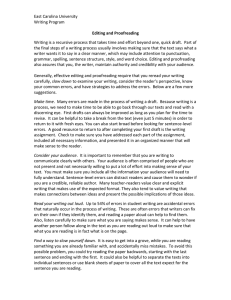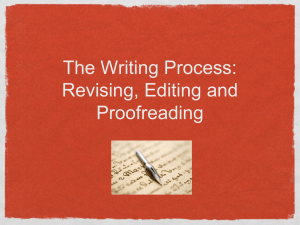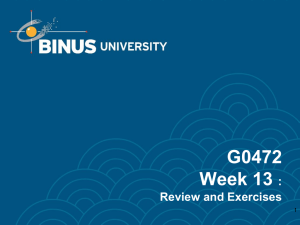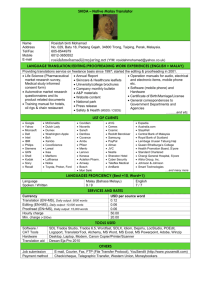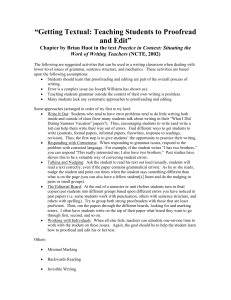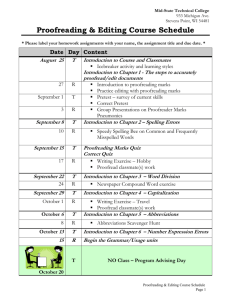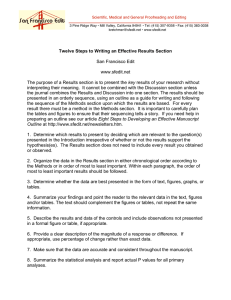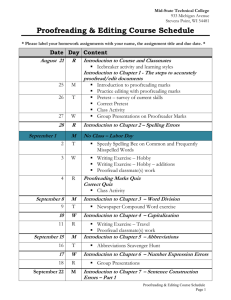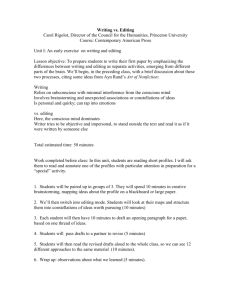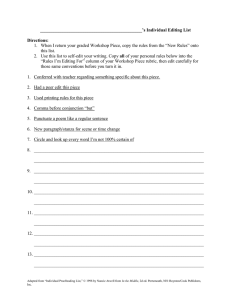Editing and Proofreading Strategies
advertisement
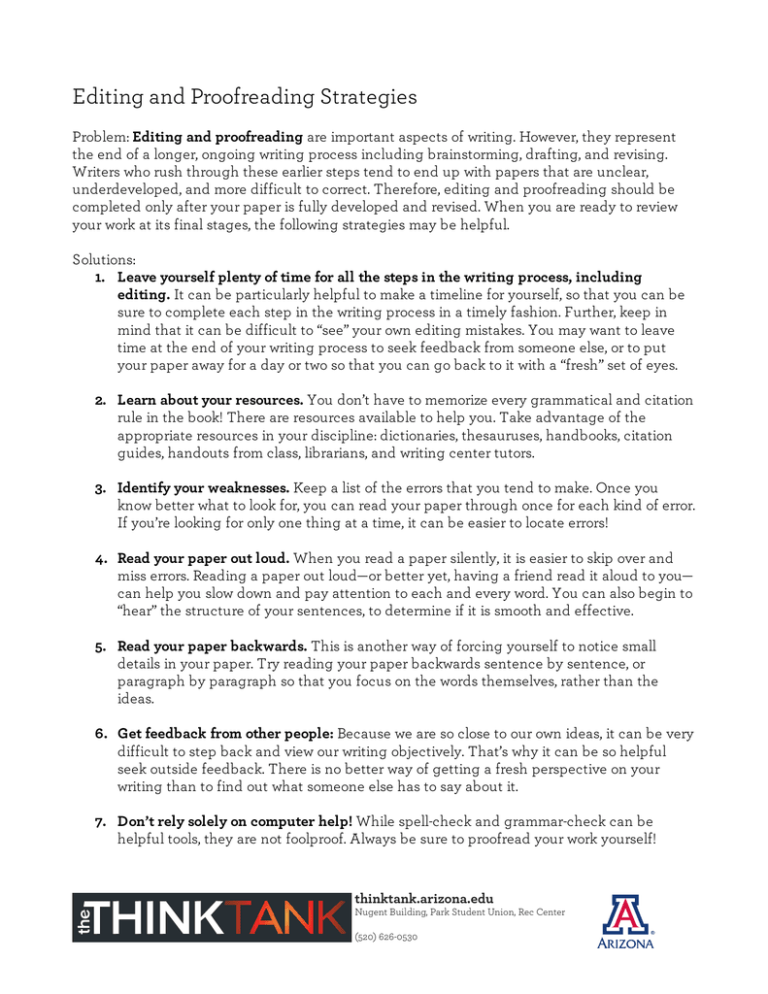
Editing and Proofreading Strategies Problem: Editing and proofreading are important aspects of writing. However, they represent the end of a longer, ongoing writing process including brainstorming, drafting, and revising. Writers who rush through these earlier steps tend to end up with papers that are unclear, underdeveloped, and more difficult to correct. Therefore, editing and proofreading should be completed only after your paper is fully developed and revised. When you are ready to review your work at its final stages, the following strategies may be helpful. Solutions: 1. Leave yourself plenty of time for all the steps in the writing process, including editing. It can be particularly helpful to make a timeline for yourself, so that you can be sure to complete each step in the writing process in a timely fashion. Further, keep in mind that it can be difficult to “see” your own editing mistakes. You may want to leave time at the end of your writing process to seek feedback from someone else, or to put your paper away for a day or two so that you can go back to it with a “fresh” set of eyes. 2. Learn about your resources. You don’t have to memorize every grammatical and citation rule in the book! There are resources available to help you. Take advantage of the appropriate resources in your discipline: dictionaries, thesauruses, handbooks, citation guides, handouts from class, librarians, and writing center tutors. 3. Identify your weaknesses. Keep a list of the errors that you tend to make. Once you know better what to look for, you can read your paper through once for each kind of error. If you’re looking for only one thing at a time, it can be easier to locate errors! 4. Read your paper out loud. When you read a paper silently, it is easier to skip over and miss errors. Reading a paper out loud—or better yet, having a friend read it aloud to you— can help you slow down and pay attention to each and every word. You can also begin to “hear” the structure of your sentences, to determine if it is smooth and effective. 5. Read your paper backwards. This is another way of forcing yourself to notice small details in your paper. Try reading your paper backwards sentence by sentence, or paragraph by paragraph so that you focus on the words themselves, rather than the ideas. 6. Get feedback from other people: Because we are so close to our own ideas, it can be very difficult to step back and view our writing objectively. That’s why it can be so helpful seek outside feedback. There is no better way of getting a fresh perspective on your writing than to find out what someone else has to say about it. 7. Don’t rely solely on computer help! While spell-check and grammar-check can be helpful tools, they are not foolproof. Always be sure to proofread your work yourself! thinktank.arizona.edu Nugent Building, Park Student Union, Rec Center (520) 626-0530
